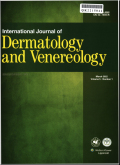摘要去泛素化酶家族种类繁多,分布于人体多种器官及组织,是泛素-蛋白酶体途径的重要组成部分,精细调控真核细胞生物细胞内蛋白的降解.A20、CYLD、泛素特异性加工酶7等去泛素化酶通过与外异蛋白受体、Fas相关的死亡区蛋白、B细胞淋巴因子-3、核因子-κB抑制蛋白激酶等因子相互作用,可参与银屑病、皮肤基底细胞癌、皮肤鳞状细胞癌、皮肤附属器肿瘤、Kaposi肉瘤以及恶性黑素瘤等皮肤疾病的发生发展.探讨去泛素化酶作用机制,有助于为炎症及肿瘤性皮肤病提供新的治疗靶点.
更多相关知识
abstractsThere are a great variety of deubiquitinating enzymes (DUBs) distributed in multiple human tissues and organs.As an important part of ubiquitin-proteasome pathway (UPP),DUBs can tightly control the degradation of eukaryotic intracellular proteins.It has been revealed that some deubiquitinating enzymes such as A20,cylindromatosis (CYLD) and ubiquitin-specific processing protease-7 (USP7) may take part in the occurrence and development of psoriasis,basal cell carcinoma,squamous cell carcinoma,cutaneous adnexal neoplasms,Kaposi's sarcoma and malignant melanoma through interaction with ectodysplasin-A receptor (EDAR),Fas-associated death domain-containing protein (FADD),B-cell leukemia/lymphoma 3 (Bcl-3),I kappa B kinase (IKK),and so on.Therefore,exploring the action mechanism of deubiquitinating enzymes will help to find new targets for the treatment of inflammatory dermatoses and skin tumors.
More相关知识
- 浏览612
- 被引2
- 下载98


相似文献
- 中文期刊
- 外文期刊
- 学位论文
- 会议论文



 换一批
换一批 换一批
换一批



